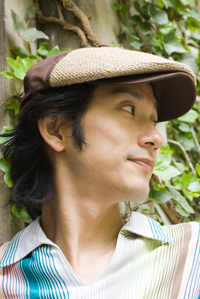Don't see what you're looking for?
Main Site
Berklee.eduCampuses and Schools

Abe, Tsunenori
Tsunenori "Lee" Abe
For media inquiries, please contact Media Relations
- Vocalist, pianist, and trombonist
- Leader of Syncopation
- Performances with the Boston Pops, Cheryl Bentyne, Carlos Kanno, Hiroyuki Noritake, and Luciana Souza
- Recordings include Wonderful You, Of Blue, and A New Dance with Syncopation, as well as Orion za to Hatsukoi, Shakunage no Hana no Saku Koyo, Voice Connection, and Hug
- Multiple publications through YAMAHA Music Publishing and UNC Jazz Press, among others
- Music director, Boston Jazz Voices
- Boston Pops Orchestrator
- Collaboration with Longwood Symphony Orchestra
- Vocal jazz clinician
- Recipient of Best Arranger's Award, 2008 Harmony Sweepstakes
- Recipient of S&R Washington Award, 2012
- Diploma, Berklee College of Music
- B.A., Unversity of Tsukuba, Japan
- M.M., Composition, Longy School of Music
"I came to Berklee after establishing a career in Japan. I studied international relations in my undergrad, then I was working full-time in a boy band. I loved the experience; I learned quite a lot. I still love singing in vocal harmony. Eventually I started to feel like I do need education, especially as an arranger and composer."
"I'm teaching arranging, and I'm trying to make it as real life as possible. Today for instance I taught students how to write for drum set, and next week I'm going to bring them to the ensemble room so that they can play a real drum. Today I had them do some vocal percussion. I divided them into three groups doing the bass drum, snare drum, and hi hat, then I combined them together."
"I'm trying to get students to analyze the music all the time. For instance, if you're a vocalist you probably will not focus on where the snare drum is placed. But if you know what's going on behind you, you can sing better, and you don't have to hire an arranger. I think you can learn the most by analyzing what you like. Why do I like it? Let's try to imitate at first and then make it our own."